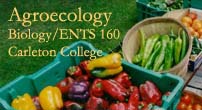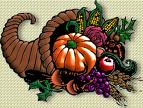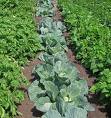
Farmelton
The Carleton Farm
A project of the Bio 160 Agroecology Course







THE CARLETON FARM’S
MISSION STATEMENT:
The foremost goal of the proposed Carleton farm is to provide opportunities for hands-on, multidisciplinary education while promoting organic and sustainable agricultural practices. The farm will be run primarily by students, offering them the opportunity to build practical skills in farming, business, and leadership through experience, while uniting them with the process of growing food.
OTHER POSSIBLE APPLICATIONS OF THE CARLETON FARM:
-To provide the campus with access to organic produce grown by students
-To serve the food needs, either through sale or donation, of local communities
-To provide educational opportunities for community members
PROS AND CONS OF HAVING A STUDENT FARM AT CARLETON:
PROS
-Promotes community
-Promotes sustainability
-Students engage in the process of producing food
-Students get experience packaging and selling their produce
-Serves as a venue for organic farming research
-Possible cooperation with charitable organizations
-Opportunity for hands-on education
CONS
-Lack of institutional support/communication
-Demands student dedication
--Difficult to maintain due to small, fluctuating student population
-Unavoidable soil degradation/altering of the natural landscape
-Possible complications in dealing with dining services
-Lack of profitability
-Other farms in the area could serve a similar purpose
Concerning the CONS:
Most of the cons of starting a student-run farm at Carleton are the generic concerns that accompany any attempt at farming. The impact our farm might have on the environment falls into this category.
Environmental concerns include soil degradation, as tillage and cultivation will likely result in the loss of organic matter and the deterioration of soil structure. Other ill effects to the soil include “salting, waterlogging, compaction, contamination by pesticides, and loss of fertility”.1 The impact of our farm on the hydrolic system is also a matter of concern, because all farms demand a lot of water.2 Often water is wasted through evaporation or drainage, which may contaminate the environment and even cause changes in microclimate.3 The possible leaching of fertilizer and pesticides into the groundwater is another cause for concern, as it may have widespread effects on both the water-table and the aquatic ecosystems of streams, rivers, and oceans. These problems can be controlled and lessened by practicing sustainable agriculture; however, by establishing a farm we will be replacing an area which used to be prairie with a man-made system, assuming that our farm will be situated in the arboretum. This will decrease the diversity of species in the area, and alter the natural landscape, no matter how sensitive the farming practices are to the needs of the environment. All of these issues must be taken into consideration when planning the farm in order to minimize the amount of damage done to the environment.
There is also some question as to whether a student-run farm will be beneficial to Carleton. It is unlikely that such a farm could produce enough food to substantially impact dining services—it would be impossible for it to produce the quantity needed to feed the student body. The farm's effectiveness in dining services would also be limited by which crops are in season. Carleton might be better off using the money that would be spent on the farm in procuring produce from local farmers. Using the farm for research or experimental purposes might make more sense, if it weren't for the fact that the University of Minnesota already does extensive agricultural research, rendering our tiny model rather superfluous. The financial aspect of the farm must be considered as well; if the farm does not generate enough income, it might not be in the college's best interest to continue funding it every year. There is also the possibility that there won't always be enough student interest to maintain the farm. This may be the most important concern of all—none of these other issues really matter if students are willing to put time and energy into the project of starting a farm, as one could argue that the experience of working a farm would be worthwhile on its own.
Mission statements of other schools:
- Cornercopia, University of Minnesota small organic farm, student run (St. Paul campus) http://sof.cfans.umn.edu/
- To steward a student managed, organic, sustainable farm that provides food, a place for community building, multidisciplinary education, research and outreach.
- Round River Farm, Finland, Minn. http://www.round-river.com/index.html
- Round River Farm is solar and wind powered and uses an intensive cropping system. We use green manures, crop rotations and companion planting on our sandy loam soils. Our philosophy evolved from Conservationist Aldo Leopold's writing:
- "The current is the stream of energy which flows out of the soil, into plants,
thence into animals, thence back into the soil, in a never-ending circuit of life." - From this concept we drew our farm's name, Round River. We have set forth to create a lifestyle and agriculture system that is as cyclical and natural as Leopold's Round River.
- Easy Bean Farm, Milan, Minn. http://www.easybeanfarm.com/
- As we manage this land we attempt to take all of its inhabitants into consideration. The profitability of our farm is measured as much by the quality of the water, the health of the soil, and the diversity of its ecosystem, as by the dollars it brings us. As we farm it is our goal to produce agricultural systems that are as stable and diverse as the natural ecosystem they replace. This has led us to plant over 20 acres of trees, restore native prairie species, farm all of our cropland organically, and incorporate passive solar design in restoring our 100 year old house.
- Swenson Orchard, Montevideo, Minn. http://www.prairiefare.com/swensonhp.htm
- Our goals are to provide for you the best tasting fruit we can produce.
- We are determined to provide good tasting apples for our customers, using the least toxic and fewest sprays possible. We began our Orchard after consulting with other orchardists who had worked with Robert Rodale of "Organic Farming and Gardening". The beneficial insects, birds and amphibians we see in our Orchard are our best indication that this is working
- Featherstone Farm, Winona, Minn. http://www.featherstonefarm.com/index.html
- Our basic goals as farmers are:
- to produce the tastiest, most healthful organic fruits and vegetables we can
- to build soil and care for all aspects of the farm environment, large and small
- to serve local communities of consumers with the freshest produce available
- Our philosophy is rooted in the belief that the freshest, best tasting, and most nutritious fruits and vegetables come from sustainable systems that consider the strength and value of all elements of those systems. We are delighted to offer an alternative to petrochemical- based industrial agriculture. Our farm is an attempt to create an organic, locally rooted alternative to this industry; a farm and farmers folks can get to know and trust.
- These ideas guide us as we consider what to grow, how to grow it, and where and in what way to sell our produce. They also shape our long-term plans for the farm.
For more mission statements, from farms from other states or other countries, visit http://www.organicconsumers.org/csa.htm
Resources:
Gliessman, Stephen R. Agroecology: The Ecology of Sustainable Food Systems. 2nd ed. New York: Taylor & Francis Group, 2007.
http://studentfarm.ucdavis.edu/
http://sof.cfans.umn.edu/
http://www.extension.umn.edu/topics.html?topic=4
People contacted:
Patrick C. Castrenze
pcc29@cornell.edu
Manager, Dilmun Hill Farm
College of Agriculture and Life Sciences
Cornell University
http://picasaweb.google.com/bscottk/DilmunHill02
Sean Clark
Sean_Clark@berea.edu
http://www.berea.edu/sens/sustainablecampus/documents/Winter-07.pdf
Connie Falk
Professor
Dept. Agricultural Economics and Aricultural Business
MSC 3169 Box 30003
New Mexico State University
Las Cruces, NM 88003
http://agesvr1.soilphys.ad.nmsu.edu:8888/oasis/
Joan Tannheimer
Program Assistant
Center for Agroecology and Sustainable Food Systems
University of California
1156 High Street
Santa Cruz, CA 95064
Phone: 831 459-3240 Fax: 831 459-2799
Center website: http://casfs.ucsc.edu
Mark Van Horn
Director, The Student Farm
UC Davis College of Agricultural and Environmental Sciences
Phone: (530) 752-7645
mxvanhorn@ucdavis.edu
http://studentfarm.ucdavis.edu/Default.htm
Josh Viertel
Director, Yale Sustainable Food Project
309 Edwards Street
New Haven, CT 06511
Office: 203.432.2084
Cell: 203.410.6506
joshua.viertel@yale.edu